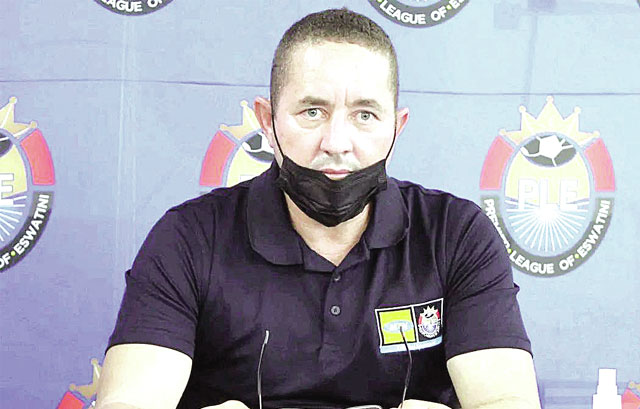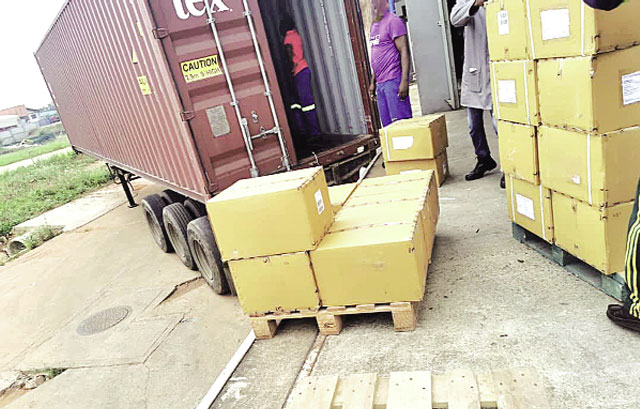By Joy Ndwandwe | 2020-11-01

This year 2020, I am missing Sibaya to the point of experiencing withdrawal symptoms as due to COVID-19, there is no People’s Parliament.
The 2005 Constitution of this kingdom, Sibaya is part of Chapter 16 Traditional Institutions, Section 232 (1) the people through Sibaya constitute the highest policy and advisory council, Libandla; (2) the Sibaya is the National Council constituted by Bantfwabenkosi, tikhulu of the realm and all adult citizens gathered at the official residence of the Ndlovukazi under the chairmanship of iNgwenyama who may delegate this function to any official; and (3) Sibaya functions as the annual general meeting of the nation but may be convened at any time to present the view of the nation on pressing and controversial national issues.
Evidently, as a proponent of integrating indigenous knowledge and modernity, Sibaya, provides the appropriate platform for using my voice.
Thus, am an official member of the Peoples Parliament, where I actively participate as an adult citizen without being compromised by monetary benefits! Such as the Houses of Parliament I intend to share my professional views on this article, taking into consideration the recent theatrics. This professional view would have been articulated during Sibaya, the highest policy and advisory council, however, due to minimising fast tracking my risk of hypertension and diabetics, cannot wait for next year.
My humble apologies Your Majesty for using this column for national pressing and controversial issues, below are my humble contributions towards nation building, peace and stability, Bayethe Wena Waphakathi.
Tinkhundla Governance Entropy
The kingdom’s Houses of Parliament is constituted by elected and appointed members under the Tinkhundla Governance System, moreover, Prime Minister is appointed by appointing authority and validated by Swazi National Council, Sibaya. Members of Sibaya assembly during the day His Majesty King Mswati III unveils the Prime Minister, have the responsibility to validate this appointment through their voices, Bayethe Wena Waphakathi. Thus, creating a symbiotic relationship between Tinkundla Governance System that elects parliamentarians and Cabinet led by prime minister validated at the people’s parliament. Hence, my national pressing and controversial matter is that parliament, elected and appointment members, including prime minister must never forget they were validated by members of Sibaya.
Evidently, His Majesty King Mswati III, Head of State and Indigenous Knowledge, supported by Sibaya representatives of the nation validates his appointee, shouting Bayathe Wena Waphakathi, without this shout appointments would be invalid. Hence, my contention with Tinkhundla Governance entropy articulated in Attuned Leadership: African Humanism as Compass, Khoza ((2011): “Entropy-in the physical sciences, the tendency of systems to run towards greater disorder unless new energy is added.
In human and organisational terms, purposeful activity, discipline and foresight are the enemies of entropy.
Leadership that tackles entropy re-energies a moribund followership.” The recent House of Parliament theatrics, ranging from refusal by Senate President to present her case in PAC, motion attempting to oust MP Khumalo and sacking of Clerk of Parliament, indicate entropy.
The current worrying levels of entropy within Tinkhundla Governance, evidently, everyone who is a member of parliament is a product of this governance system, appointed and elected. These three incidents were indicators and catalyst of the inherent entropy within Tinkhundla Governance, which requires as stated by Khoza, purposeful activity, discipline and foresights the enemies of entropy.
In my professional opinion, Tinkhundla Governance entropy emanates from leadership embedded within poverty consciousness, that is, greed, materialism, and corruption, manifesting in declining followership.
Thus, Tinkhundla governance entropy can manifest in greater disorder, while providing the shield for more untouchables refusing to be held accountable or tell their side of the story. Or create the appropriate context to be re-energized with new energy through bringing into the leadership space, new young dynamic ethical leadership through elections and appointees of His Majesty King Mswati III.
Houses of Parliament Theatrics
The Tinkhundla Governance entropy evident in Houses of Parliament theatrics indicate disharmony within the prevailing Tinkhundla constituencies in the Argus house. His Majesty’s appointees, which are predominantly emanating from what I have coined, ‘JC constituency’ thus, excluding the historical appointees of chiefs and members of royal family.
Then, there is the formidable politician being ousted, MP Marwick now in minority originating from Sibahle Sinje Cultural Group. Then there are these new members who have surfaced loaded with money, the rich kids ousting formidable politicians, while we are all asking ourselves whether they had rich parents. Other schools of thought say, no, they are insangu entrepreneurs, which is beginning to sound plausible as this parliament has the legalisation legislature, so representation of insangu Constituency is crucial this term of office.
This scenario evoked within the Houses of Parliament theatrics enabled my reflections on the words of Reilly (2006): “Inchoate party system; ‘party organisations’ are generally weak, electorate vitality is high, party roots in society are week, and individual personality dominates parties and campaigns…low levels of ideological coherence and programmatic commitment, lack of a well-developed organisational structure and membership base, depends on clientelistic mobilization for the election success relying upon single charismatic leader.”
Although members of parliament come from constituencies and not political parties, however, these constituencies in my professional opinion are inchoate. They are underdeveloped, thus, rendering them high risks to the House of Parliament, through resisting presenting their ethical leadership to PAC, ousting MPs and sacking Clerk to Council.
The mutuality relationship between Sibaya, House of Parliament and Cabinet reflects on His Majesty King Mswati III as Head of State and Indigenous Knowledge, thus, this entropy and theatrics impact on overall governance risk. Particularly when these constituencies are behaving like political parties due to their privilege position, ousting, firing and refusing to be held accountable, this in my professional opinion negates Tinkhundla.
The governance system which is nonpolitical party oriented due to the demographic nature of this country, this assertion affirmed by Reilly (2006): “political parties play an important role in the management of conflict in societies divided along cultural, linguistic, religious, regional and other lines.” Thus when the House of Parliament becomes a source of conflicted political space in a mono-ethnic society, then entropy and theatrics are problematic.
Conclusion
I conclude, as a proponent of Tinkhundla Governance System and champion of integrating indigenous knowledge and modernity, the entropy and theatrics, made me ponder whether there are political parties in parliament.
Not because, am interested in founding a political party to compete, however, as an indigenous governance scholar, I would recommend fair competition towards sustained peace and stability. As unfair political competition in my professional view would manifest into what Reilly (2006) states: “‘polarized pluralism’ featuring competition between extremist movements…politics became a centrifugal game.” Thus, my imagination was racing towards conflict and violence, with JC Constituency in religious space, Insangu Constituency, and progressives that have been calling for political change.
Then I remembered why I remain nonpolitical for my decisions must consider social cohesion, nation building, peace and stability, yet, politicians make decisions based on political power and patronage.
May I declare, I went to university with Senate President and former Clerk to Council, and this is nothing personal but purely profession and in the interest of social cohesion. MP Marwick Khumalo, my peer since we were children, during school holidays we met at Metro Cash and Carry his father and my grandfather buying stock for business.
MP Khumalo once invited me to Sibahle Sinje Cultural Group meeting, after being mentored at Right Brain Institute, where I was warned against religious and political leadership.
share story
Post Your Comments Below

SOCCER - FOLLOWING the submission of the 16-team league proposal by elite league and NFD clubs, t...
ATHLETICS - A true marathon indeed!
The High court has issued an order to Athletics Eswatini...

The ministry of health has announced the arrival of vital medicines and medical supplies.
Over 2 000 interned paramedics are said to be unemployed 10 years after completing their training...
All material © Swazi Observer. Material may not be published or reproduced in any form without prior written permission.
Design by Real Image Internet